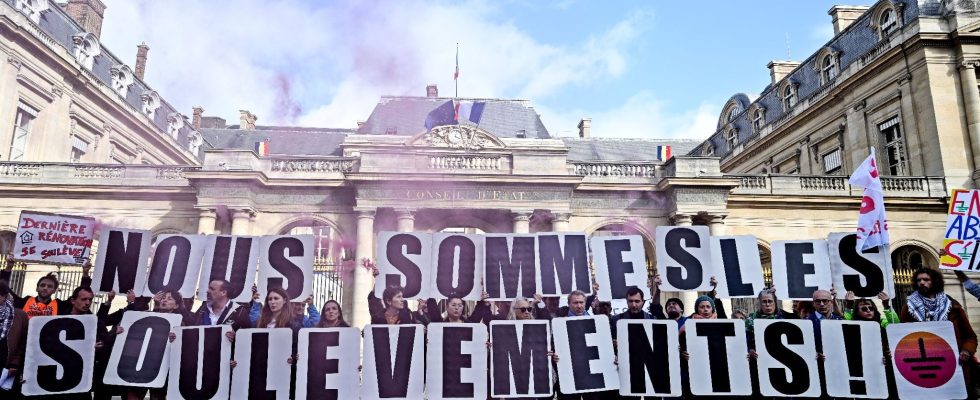Anxiety, fear, feelings of helplessness, anger, guilt… More and more young people around the world are deeply worried about the climate emergency. Faced with this “ emerging public health crisis » according to experts, one of the answers is to come out of isolation and choose your way of taking action. This week, RFI takes you in contact with those who, in France, have transformed their eco-anxiety into action: this Thursday, December 28, the example of scientists who are documenting the collapse of biodiversity and the climate crisis.
This morning in June 2023, several dozen gathered in front of the Council of State in Paris to show their support for the Earth Uprisings, an ecological collective which was then threatened with dissolution by the French government. Jérôme Santolini, research director at the Atomic Energy Commission, added his voice, that of a scientist, to that of the activists:
“ From the moment you have knowledge, knowledge, you can no longer act as if it does not exist. And it is an injunction to act. When you know that pesticides kill farmers, endanger the lives of children, that plastic is responsible for phenomenal amounts of reproductive disorders, reduced fertility, etc. You can no longer act like you don’t know. You must act. »
Producing knowledge was no longer enough for him. Not feeling sufficiently listened to, in particular by the public authorities, he therefore joined the group Scientists in Rebellion, a collective which organizes striking actions. One way to combat eco-anxiety:
“ Scientists are on the front lines because scientists document the state of the world, but especially the sick state of the world. It’s like you have a tsunami coming at you, you’re the only one who sees it and no one reacts. And no one listens to you. That’s eco-anxiety. »
Others are mobilizing differently, like Valérie Masson-Delmotte, paleoclimatologist and former member of the IPCC:
“ I measured the seriousness of the situation in the 1990s, when I began, as a young doctoral scientist in a research laboratory, to take stock of the issues. I understand the feeling of dizziness when we understand the scale of the risks and the scale of the transformations to be carried out. So, on a personal level, I am in action, the action of producing knowledge, evaluating it, communicating it, strengthening the “climate literacy” of others and being aware of what I can to do and what is the responsibility of others, not to put on myself the unbearable mental burden of initiating the transformation of others. »
An outstanding communicator from social networks to conference rooms and ministerial offices, she has become one of the most prominent scientists in the country. Popularizing and reaching as many people as possible has become her own form of activism.
